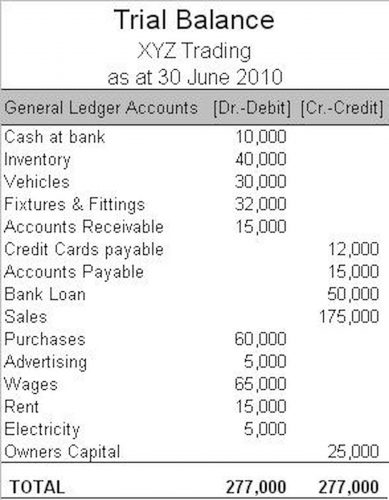What Deferred Revenue Is in Accounting, and Why It’s a Liability

This means the business earns $10 per issue each month ($120 divided by 12 months). Deferred revenue is payment received from a customer before a product or service has been delivered. Unearned revenue does not initially appear on a company’s income statement. As the company fulfills its obligation to provide the goods or services, the unearned revenue liability is decreased, and the revenue is recognized on the income statement. Unearned revenue plays a crucial role in accrual accounting, as it represents cash received from customers for services or products that have not yet been delivered. It is recorded as a liability because the company still has an outstanding obligation to provide these goods or services.

Is Deferred Revenue a Liability?
This is why unearned revenue is recorded as an equal https://www.bookstime.com/ decrease in unearned revenue (a liability account) and increase in revenue (an asset account). It would go in the “liabilities” category, as it is money owing. The business has not yet performed the service or sent the products paid for. At the end of the month, the owner debits unearned revenue $400 and credits revenue $400. He does so until the three months is up and he’s accounted for the entire $1200 in income both collected and earned out.
Deferred Revenue Recognition Compliance

The Securities and Exchange Commission (SEC) oversees these rules and regulations to ensure proper disclosure and accurate representation of a company’s financial situation. At the end of the second quarter of 2020, Morningstar had $287 million in unearned revenue, up from $250 million from the prior-year end. The company classifies the revenue as a short-term liability, meaning it expects the amount to be paid over one year for services to be provided over the same period.
- If you provide subscriptions or services, you or your bookkeeper will likely be recording unearned revenue on a regular basis.
- It is good accounting practice to keep it separated in a deferred income account.
- Therefore, if a company collects payments for products or services not actually delivered, the payment received cannot yet be counted as revenue.
- You record prepaid revenue as soon as you receive it in your company’s balance sheet but as a liability.
- The agreement pertaining to this transaction stats that the company must manufacture and provide goods to the buyer on January 15, 2022 against the prepayment received from him on December 1, 2021.
Unearned Revenue vs Deferred Revenue
In other words, it pertains to revenue already collected but the service has not yet been rendered. Unearned revenue is also referred to as deferred revenue and advance payments. In short, a company needs to generate enough revenue and cash in the is unearned revenue a current liability short term to cover its current liabilities.
- Under the liability method, you initially enter unearned revenue in your books as a cash account debit and an unearned revenue account credit.
- This approach can be more precise than straight line recognition, but it relies upon the accuracy of the baseline number of units that are expected to be consumed (which may be incorrect).
- Deferred revenue is revenue recorded for services or goods that are part of its operations; therefore, deferred revenue is an operating liability.
- Proper cash management is crucial for a company dealing with unearned revenue.
- The initial journal entry will be a debit to the cash account and credit to the unearned revenue account.
Deferred expenses, much like deferred revenues, involve the transfer of cash for something to be realized in the future. Deferred revenues refer to money received for goods https://www.facebook.com/BooksTimeInc/ or services to be provided to customers later, whereas deferred expenses refer to money expended for obligations not yet observed. The rent is paid in advance for future use of property or land.
- Unearned revenue is typically classified as a current liability because the company expects to fulfill its obligations and deliver the goods or services within one year.
- Therefore, the country club has satisfied one month (1/12th) of its requirement to offer country club benefits for a full year.
- In total, the company collects the entire $1,000 in cash, but only $850 is recognized as revenue on the income statement.
- This changes if advance payments are made for services or goods due to be provided 12 months or more after the payment date.
- Therefore, you will record unearned revenue on your balance sheet under short-term liabilities—unless you will deliver the products or services a year or more after receiving the prepayment.
- Once goods or services have been rendered and a customer has received what they paid for, the business will need to revise the previous journal entry with another double-entry.

In conclusion, the proper accounting treatment of unearned revenue is necessary for accurate representation of a company’s financial health. Deferred revenue is recorded as such because it’s money that hasn’t yet been earned. Unearned revenue typically arises when a company receives compensation but still has to provide products for which the payment was made. Also referred to as deferred revenue, unearned revenue is considered as a form of prepayment, where the purchaser pays for a product or service before actually receiving it.

Related AccountingTools Courses
The adjusting entry will always depend upon the method used when the initial entry was made. Deferred revenue can be set to automatically reverse in basic accounting information systems. Though a company will have to monitor the monthly activity, this frees up analysts time to scrub their financial reports. Due to its short-term nature, deferred revenue is often expected to satisfy within the next year. In all three situations, the company has performed business activity.

Unearned revenue is most commonly understood as a prepayment provided by a customer or client who expects the business to deliver an item or service on time as agreed upon at the time of the purchase. In summary, unearned revenue is an asset that is received by the business but that has a contra liability of service to be done or goods to be delivered to have it fully earned. This work involves time and expenses that will be spent by the business.



